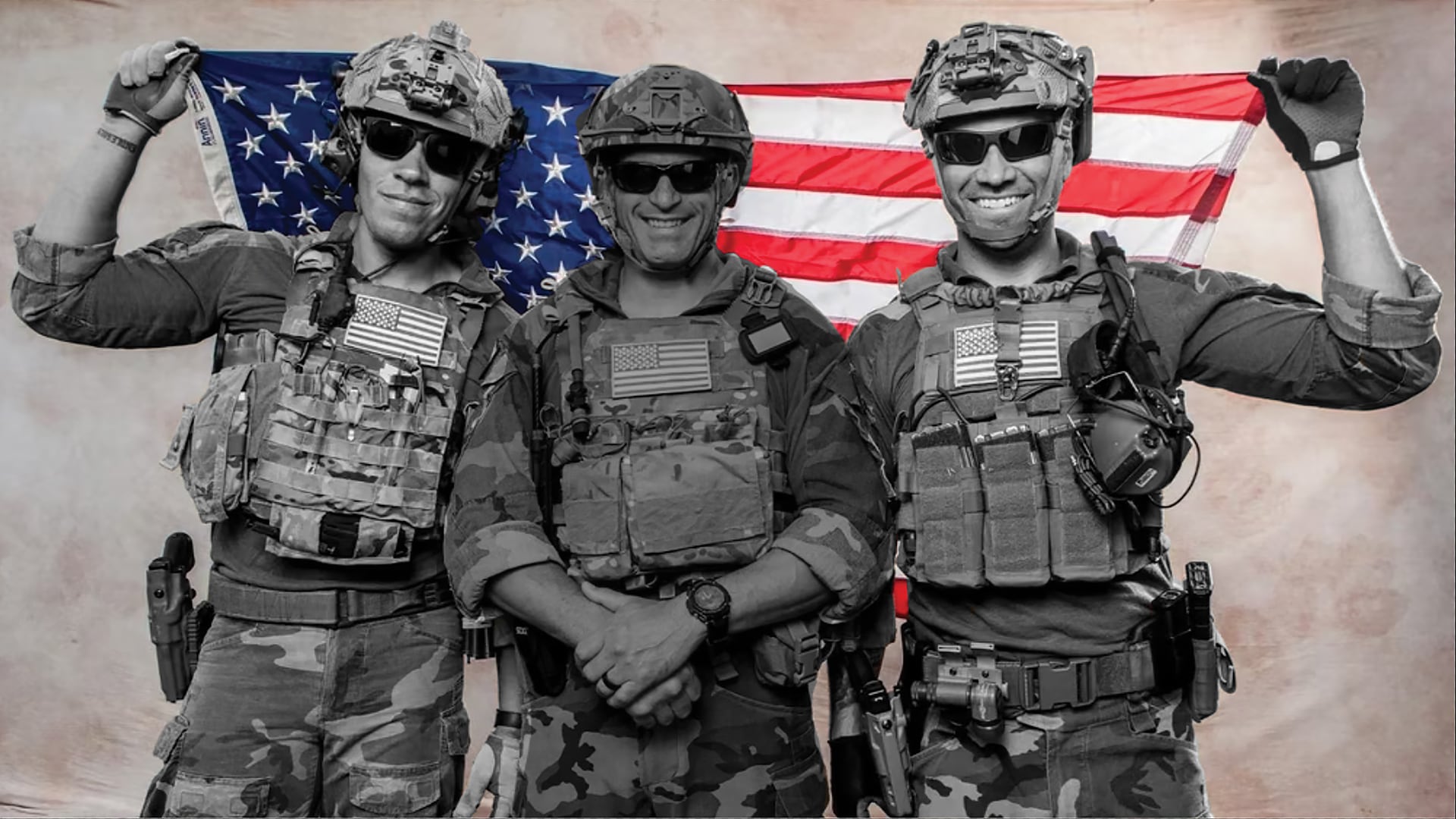The same month that two Marine Raiders were found not guilty of homicide charges, an appeals court has agreed to review the case of a third defendant in the so-called “MARSOC 3″ case, opening the door for it to be dismissed.
The U.S. Court of Appeals for the Armed Forces on Wednesday said it would examine whether a military judge had been right to dismiss Navy Chief Petty Officer Eric Gilmet’s case because of alleged unlawful command influence by a top Marine lawyer. A lower appeals court later reinstated the charges.
Gilmet — along with Marine Gunnery Sgts. Danny Draher and Josh Negron — were charged with involuntary manslaughter, negligent homicide, obstruction of justice and lesser offenses in 2019.
In the early hours of New Year’s Day 2019, they had been celebrating at a bar off-base in Irbil, Iraq, along with retired Army Master Sgt. Rick Rodriguez, a military contractor. Security footage shows that Rodriguez became so aggressive with Gilmet that bouncers had to kick him out of the bar.
RELATED

Outside, in a brief fight that the Marine Raiders maintained was started by Rodriguez, Negron threw a punch at Rodriguez — which the defense team said was to protect Draher.
Rodriguez fell backward onto his head.
The men brought him back to base and left him with Gilmet, an experienced hospital corpsman. Later that morning, as Rodriguez’s condition worsened, Gilmet and others took the contractor to a local military facility.
Rodriguez, a former Green Beret, was flown to a military hospital in Germany. He was pronounced dead a few days later.
The prosecution alleged that Gilmet committed involuntary manslaughter and negligent homicide by not taking Rodriguez to a hospital earlier, according to the corpsman’s charge sheet.
Gilmet had been scheduled to go to trial in January 2022 until a comment by a top Marine lawyer significantly complicated the case.
In November 2021, Capt. Matthew Thomas, the Marine judge advocate who was representing Gilmet at the time, asked Col. Christopher B. Shaw, then the deputy director of the Judge Advocate Division of the Marine Corps, a question about whether defense attorneys in high-profile cases were protected from outside influence.
Shaw’s response, according to multiple sworn affidavits by other military defense counsel in the room at Camp Lejeune, North Carolina, was to the effect of: “I know your name and I know what cases you’re on and you are not protected. You are shielded but not protected.”
An anonymous complaint kicked off an investigation into Shaw’s comments. It found that Shaw had acted inappropriately but hadn’t broken the law. Gilmet lawyer and retired Marine Lt. Col. Colby Vokey previously called the investigation “one of the biggest whitewashes I’ve ever seen.”
Shaw was removed from his position, and Gilmet’s uniformed defense counsel, both Marine captains, said they couldn’t continue on the case because of the conflict of interest and were dismissed from it by a trial judge.
The judge, Navy Cmdr. Hayes C. Larsen, also dismissed the case against Gilmet, but the prosecution appealed that decision to the U.S. Navy-Marine Corps Court of Criminal Appeals.
In August 2022, a three-judge panel overturned the dismissal, writing that Shaw’s comments were “as shocking as they were incorrect” but that the defense lawyers’ sense of conflict of interest was “purely subjective.”
Draher and Negron also tried, and failed, to get their cases dismissed because of what they said was unlawful command influence because of Shaw’s comments. Their cases proceeded to trial before a general court-martial.
The trial at Marine Corps Air Station Cherry Point, North Carolina, ended on Feb. 1 with a jury finding Negron and Draher not guilty on all charges except violation of a lawful general order, for drinking while deployed to Iraq. The jury then decided to award the two Raiders no punishment for the one conviction.
At the trial of Draher and Negron, Gilmet testified under immunity. That immunity would make it harder for Gilmet to be prosecuted down the line, according to Vokey, because prosecutors would have to prove that they didn’t derive any of their evidence from Gilmet’s cooperation, interviews or testimony.
For now, the next big step for Gilmet is oral argument at CAAF, which is set for April 18, according to Vokey. Located in Washington, D.C., the court is composed of five civilian judges.
“Chief Gilmet is looking forward to this case being heard by CAAF,” Vokey said in a statement to Marine Corps Times. “We are confident that this court will agree with the trial judge, Commander Larsen, and find this to be an egregious instance of unlawful command influence and his ruling of dismissal with prejudice.”
The prosecutors declined to comment on the latest development; as is typical in ongoing military prosecutions, the prosecution in the Draher and Negron case hadn’t commented during the trial, either.
Irene Loewenson is a staff reporter for Marine Corps Times. She joined Military Times as an editorial fellow in August 2022. She is a graduate of Williams College, where she was the editor-in-chief of the student newspaper.





